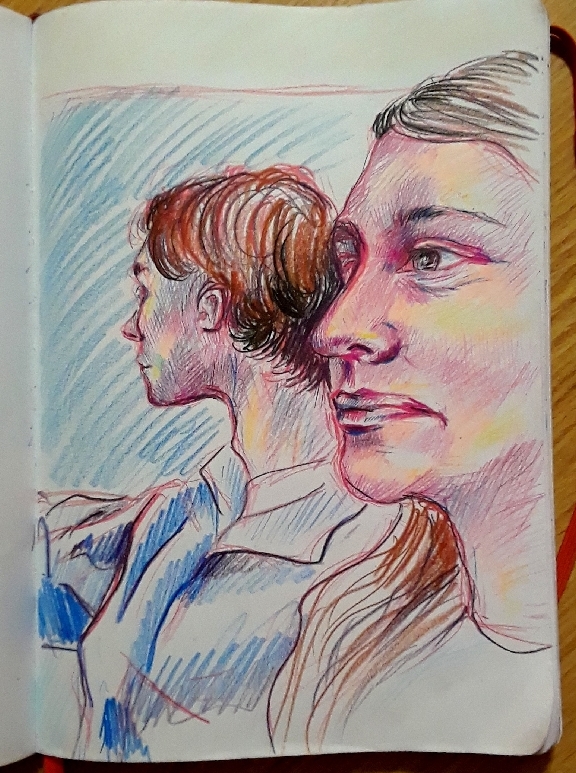Being precedes doing; this is a theological truth. The concept is as present to us as the very air that we breathe—and yet just as much forgotten about. This phrase, “being precedes doing”: what does it mean, exactly?
“Being precedes doing.” It is as it sounds. What we are comes before what we do. A less theological oversimplification might read as follows: “An action is informed and carried out by persons.” The notion is very plain and perhaps obvious; yet, the distinction that is made is paramount: persons are separate from their actions.
What then is a man, stripped bare of his actions? Why, he is still a man of course! And let us never forget this beautiful fact! For all too often one defines others simply and solely by what they can do. Yet, there was a time before in youth when we could not perform outstanding acts, and there will be such a time again with age. Clearly, our dignity as persons was never contingent upon such momentary measures. As such, we sell ourselves cheap when we are hasty to define ourselves by any action, no-matter how noble. We are much more than these.
Be that as it may, how often in our own relationships do we fail to recognize what truly matters in others? We might associate, mingle, talk, and share—in other words, do many things—but how often do we actually get to the being of a person? This is a difficult task, but, as GK Chesterton put it, “If a thing is worth doing, it is worth doing badly.” Let us at least try by applying the principle of being precedes doing.
To simply be can be hard, but it must happen before any action. It is to approach a person in such a way as to see him as a walking miracle and a tabernacle of the hidden Christ. This approach demands that one slow down and seriously consider the dignity of the person before him. Being looks to love the person before all else. Any action will thus follow in purity of intent and respect. On the other hand, to put doing first is to subconsciously place the human being second. The encounter thus begins at a loss, for the man on mission, partly blinded by his own devices, ironically overlooks the actual needs of the people right in front of him.
It is in this light that I recommend firstly learning to simply be with the others that you meet. Jesus humbled Himself to find us in the very normal aspects of life. A primary example of this is when Jesus meets the Samaritan woman at the well: He does so at a common place and begins with common speech. Here, Jesus’ simple request for a drink of water from the woman begins a long dialogue that ends with her conversion (Jn 4). In short, Jesus shared in the woman’s ordinary life, listened intently, and replied in response to her needs. We, too, must learn to be with others after this example, whether on the street-corner or coffee shop. Our love cannot be bound by conditions and expectations; we must love first, gratuitously. “This is my commandment, that you love one another, as I have loved you” (Jn 15:12).
When being precedes doing in our own interactions with people, the difference is made. Then, the sword is rather held at the hilt and not at the blade. What I mean to say is simple: first things are to be put first. Second things will naturally follow from there. Being precedes doing. -words by Benjamin C. (Indiana), illustrations by Rachel Rossier (Danbury, CT)
[*Note from the author: Context is key. This post is meant to highlight the proper order of things in general. It is not an excuse to cowardice or mere sociality. It also is not meant to disregard prudence, planning, or preaching (or any noble or virtuous thing for that matter). The post focuses on being preceding doing in brief at the cost of details and distinctions that would merit a whole treatise.]


